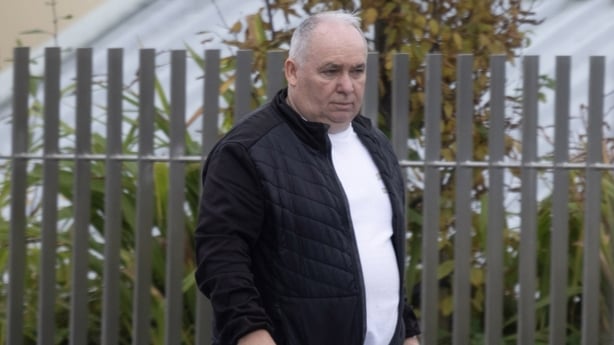A woman raped by her former partner said she did not get any counselling as she was afraid notes from the sessions would be used against her in court.
Paul Arthur, 59, from Conwall, Letterkenny in Co Donegal, was jailed for ten years after a jury found him guilty of three counts of raping Susie Lynch, in 2017 and 2018.
Ms Lynch said outside court that rape in a relationship should not remain behind closed doors.
Mr Justice Patrick McGrath described the victim impact statement that Ms Lynch gave to the court as "very powerful".
He said she described the very serious effect the rapes had on her. She had been very healthy but now suffered with her mental and physical health. He said she had a sense of betrayal after being raped in her own bed by someone she used to love.
Ms Lynch said she first gave a statement to gardaí in October 2019.
She said the trial in Castlebar, Co Mayo, was "a series of humiliations" and it was exhausting and emotionally draining to have to reveal intimate details in front of strangers. She said she had lost everything when she left the relationship.

She told the court she declined any counselling because the notes could be used against her during the trial and this was something she now regretted.
The sentence hearing heard that the rapes took place on two separate occasions in September 2017 and July 2018. On each occasion, Ms Lynch woke up to find Arthur raping her anally.
Defence counsel John Berry told the court there would be no appeal against the conviction.
Mr Justice McGrath sentenced Arthur to ten years in jail.
He said the aggravating factors were the premeditated nature of the offences and the serious breach of trust caused by the fact that they happened in the context of a long term relationship.
In mitigation he said Arthur had belatedly accepted the verdict.
Outside court, Ms Lynch said when it came to sexual violence, especially in a relationship, there was a feeling that it was a private affair that should remain behind closed doors. She said this was not the case – "rape is rape, even when it's done in your own home," she said.
She said she was handing the shame back to Arthur.
Ms Lynch also urged people still waiting for their story to be heard to believe in the process and trust their lawyers. She said the truth would be heard and the denial would not. "Justice will win," Ms Lynch said.
Groups dealing with survivors of sexual abuse and rape have campaigned for a change in the law to stop the use of counselling notes in such trials.
We need your consent to load this rte-player contentWe use rte-player to manage extra content that can set cookies on your device and collect data about your activity. Please review their details and accept them to load the content.Manage Preferences
They can be used if they are deemed relevant to the trial. But new legislation to deal with the issue has not yet been published.
In a statement the Chief Executive of the Dublin Rape Crisis Centre, Rachel Morrogh, said the centre was seeking a change to the current law so that routine access to victim's counselling notes was brought to an end.
She said the DRCC welcomed a commitment in the Programme for Government to amending the law.
She said victims already faced significant challenges before reporting offences and the possibility of having counselling records disclosed to alleged perpetrators can seriously undermine victims’ willingness to come forward and make criminal complaints.
She described the request for counselling notes as "one of the most dreaded" and one of the "cruelest points on a victim’s journey to justice and added that it could also affect a person’s healing if they felt they needed to hold back in their counselling sessions.
Ms Morrogh pointed out that only 2% of women and 1.7% of men who have experienced sexual violence as an adult make a report to gardaí. She said everything that can be done to encourage people into the justice system needs to be done, including amending this law.






